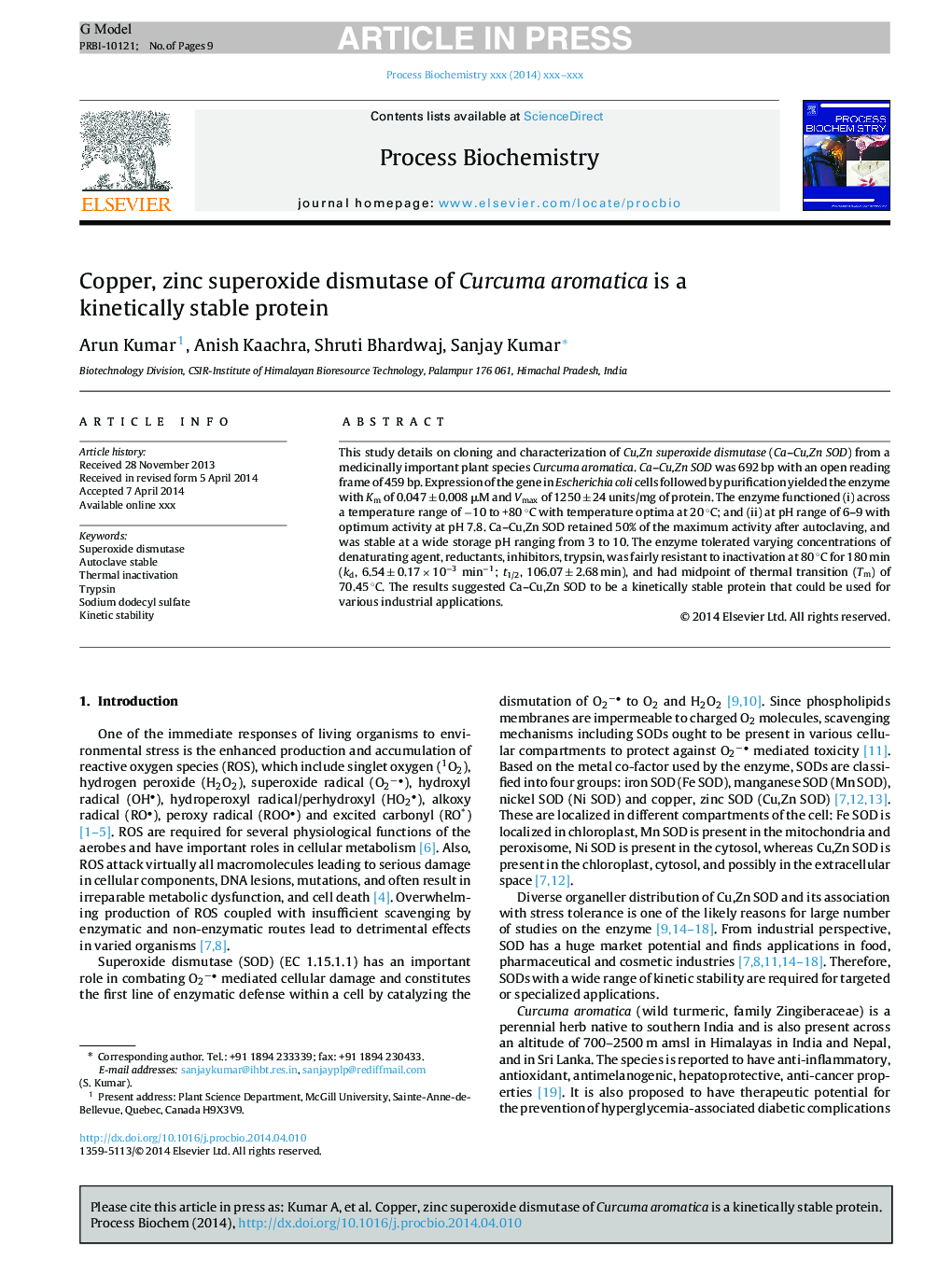| Article ID | Journal | Published Year | Pages | File Type |
|---|---|---|---|---|
| 10235400 | Process Biochemistry | 2014 | 9 Pages |
Abstract
This study details on cloning and characterization of Cu,Zn superoxide dismutase (Ca-Cu,Zn SOD) from a medicinally important plant species Curcuma aromatica. Ca-Cu,Zn SOD was 692 bp with an open reading frame of 459 bp. Expression of the gene in Escherichia coli cells followed by purification yielded the enzyme with Km of 0.047 ± 0.008 μM and Vmax of 1250 ± 24 units/mg of protein. The enzyme functioned (i) across a temperature range of â10 to +80 °C with temperature optima at 20 °C; and (ii) at pH range of 6-9 with optimum activity at pH 7.8. Ca-Cu,Zn SOD retained 50% of the maximum activity after autoclaving, and was stable at a wide storage pH ranging from 3 to 10. The enzyme tolerated varying concentrations of denaturating agent, reductants, inhibitors, trypsin, was fairly resistant to inactivation at 80 °C for 180 min (kd, 6.54 ± 0.17 Ã 10â3 minâ1; t1/2, 106.07 ± 2.68 min), and had midpoint of thermal transition (Tm) of 70.45 °C. The results suggested Ca-Cu,Zn SOD to be a kinetically stable protein that could be used for various industrial applications.
Related Topics
Physical Sciences and Engineering
Chemical Engineering
Bioengineering
Authors
Arun Kumar, Anish Kaachra, Shruti Bhardwaj, Sanjay Kumar,
